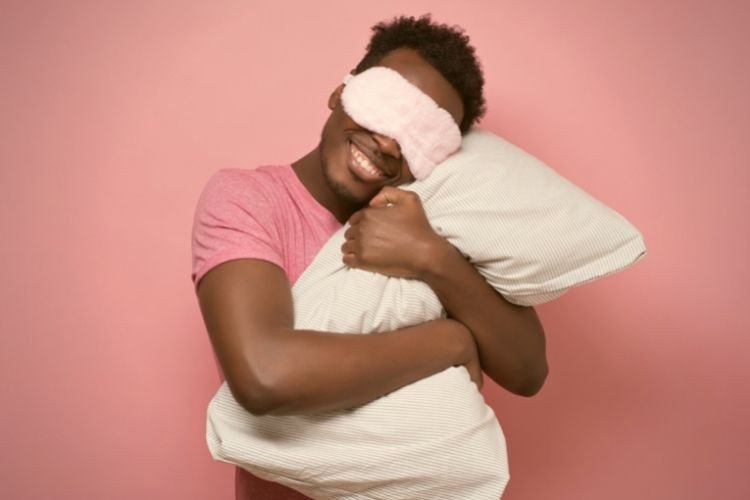How To Sleep Quickly While Traveling: 7 Practical Tips For Catching Better Sleep When You Travel
It’s no secret that getting a good night’s sleep is crucial for feeling your best, both mentally and physically. But when you’re traveling, it can often be difficult to get the quality rest you need. Jet lag, unfamiliar surroundings, crossing time zones, sleep patterns, noise, and light exposure in the early afternoon can all make it tough to fall asleep and stay asleep.
If you are one of the frequent travelers struggling to fall asleep while traveling, there are a few hacks that can help you get some shut-eye. Whether you’re taking a long flight or a road trip, these hacks that will help you to sleep quickly while traveling.
list of some important tips on How to Sleep Quickly While Traveling
Do you stay awake while traveling? Don’t worry, you’re not alone. Many people have trouble sleeping when they’re on the go.
Here are some important tips on how to get better sleep while traveling.
1. Why catching some shut-eye while traveling is important
When you’re packing for a trip, sleep is probably not at the top of your list of priorities. After all, there’s so much to see and do when you’re in a new environment.
But if you want to make the most of your trip, getting a good night’s sleep is essential. Travel can be exhausting, both physically and mentally, and it’s important to give your body a chance for a restful sleep.
A tired traveler is more likely to get sick or injured and is also less likely to enjoy the experience of being in a new place. So next time you’re packing for a trip, don’t forget to include some sleep schedule in your itinerary.
It may not be as exciting as seeing the sights, but it’s worth catching some shut-eye while you’re on the go.
2. Invest in a good travel pillow
If you’ve ever tried to get quality sleep on an airplane, you know how difficult falling asleep could be. The seats are uncomfortable, the lighting is harsh, and the noise level is high.
One way to make the experience more bearable is to invest in a good travel pillow. Having your own pillow can help you get the sleep quality you need, even when you’re stuck in an economy seat.
Look for one that is made from comfortable material and provides good support for your head and neck. And don’t forget to pack earplugs and an eye mask to help block out the noise and light.
With a little preparation, you can make your next flight a lot more pleasant and jet lag free.
More Blogs:
3. Wear comfortable clothing while traveling
There’s nothing worse than being stuck on a long flight next to a clearly uncomfortable passenger. And let’s be honest, there’s nothing more uncomfortable than being that person yourself.
That’s why it’s important to dress for travel success. First and foremost, comfort is key. You’re going to be sitting (or sleeping) in one spot for a long time, so you might as well be comfortable.
Opt for loose-fitting, breathable fabrics that won’t leave you feeling sweaty and claustrophobic. And don’t forget about footwear! Those pesky little socks that come with most airlines do nothing to keep your feet warm, so make sure to bring along a pair of cozy socks or slippers.
With just a few small tweaks to your wardrobe, you can make your next trip a lot more bearable – and maybe even enjoy a few extra winks of sleep.
4. Choose your seat wisely
Anyone who’s ever been on a long flight knows, where you sit can make or break your travel experience. So before you finalize your seat selection, take a moment to consider the following factors.
First, think about how you like to sleep while traveling. If you’re the type who can sleep anywhere, then any seat will do.
But if you need complete darkness and quiet to sleep, then a window seat is probably your best bet. If you get claustrophobic easily, then an aisle seat will give you more room to stretch out.
Second, consider the type of traveler you are. If you’re a chatty person who loves meeting new people, then sitting in the middle of the plane may be ideal. But if you prefer a little more privacy and quiet during your travels, then a window seat might be better suited for you.
Finally, take into account the length of your flight. If it’s a short jaunt, then any seat will do. But if it’s a long-haul flight across continents, then choosing wisely can make all the difference in terms of comfort and enjoyment.
So next time you’re booking travel, don’t just go for the first open seat you see. Instead, take a moment to consider what will work best for you. Your future self will thank you for it!
5. Noise-canceling headphones
Noise-canceling headphones or earplugs are a must if you intend on getting some sleep and want to avoid travel fatigue. Whether you’re trying to block out the sound of screaming babies on a plane or the persistent chatter of your fellow passengers, these headphones can help you get some much-needed rest.
And even if you’re not trying to sleep, they can still be a lifesaver, allowing you to drown out the noise and focus on your book or movie. But don’t take our word for it – just ask anyone who’s used them before.
They’ll tell you that there’s nothing quite like the feeling of finally being able to catch some good sleep while traveling. And trust us, they’re worth every penny.
So next time you travel, be sure to pack a pair of noise-canceling headphones – your sanity will thank you for it.
6. Listen to calming music
Having earphones or headphones would not be complete if you don’t have such relaxing music. Calming music or some would call it chill music is the perfect accompaniment to sleep travel.
Whether it’s the soothing sounds of the waves crashing against the shore or the gentle notes of a classical piano melody, calming music can help you drift off to sleep while traveling.
Since you’re likely to be spending a lot of time on buses, trains, and planes, it can also help to reduce noise pollution and create a more peaceful environment for you to enjoy your journey.
Additionally, if you don’t prefer the music you can listen to some simple audiobooks that don’t require you to think much, or audio stories are also great. So next time you’re planning a trip, be sure to pack your headphones and download some calming music to help you sleep while you travel.
7. Box breathing technique
One of the best ways in overcoming jet lag and combat sleepiness while traveling is to practice box breathing. Also known as four-square breathing, this technique is simple and can be done anywhere, even in a cramped airplane seat.
This simple breathing method can be used by anyone who wants to reduce mental stress and promote sleep. Here’s how it works: first, breathe in slowly for four counts, then hold your breath for four counts.
Next, breathe out slowly for four counts, then repeat the cycle. Just like that, you’re on your way to a more relaxed travel experience. So next time you’re feeling frazzled at the airport, remember – just take a deep breath. Literally.
8. Bring your sleeping essentials
Whether it’s a cozy scarf to keep you warm on a cold plane, a neck pillow to help you sleep in your seat, a sleep mask to block out the light, or earplugs to drown out the noise, make sure you pack your sleeping essentials when traveling, or sleep medicine to help you fall asleep and stay asleep, make sure you pack your sleeping essentials when traveling.
By having everything you need to sleep comfortably, you’ll be more likely to avoid sleep deprivation and catch some good sleep while you’re on the go. And trust us, your future self will thank you for it.
9. Take a warm shower before traveling
If you have the time, take a warm shower before traveling. The warmth of the water will relax your muscles and help you sleep. Plus, it’ll help you feel refreshed and invigorated for your journey ahead. Not to mention, it can also help you combat the dryness that often comes with flying.
When you take a warm shower before bed, your body temperature rises slightly. This increase in temperature promotes drowsiness and makes it easier to fall asleep. In addition, the rhythmic sound of the water can help to lull you into a relaxed state.
10. Stay Hydrated
Staying hydrated is important for many reasons, but it’s especially crucial if you want to get better sleep while traveling. When you’re dehydrated, your body doesn’t have enough fluid to cool itself down, which can make it harder to fall asleep. Dehydration can also cause headaches and muscle cramps, both of which can make it difficult to sleep. So next time you’re packing for a trip, be sure to pack a bottle of water (or two).
Conclusion
There you have it – seven hacks to help you sleep while traveling. Whether you’re taking a long-haul flight or spending hours on a bus or train, these tips can help you catch some much-needed shut-eye. We highly recommend using all these hacks together while traveling to get the best experience. So next time you travel, be sure to give them a try.






